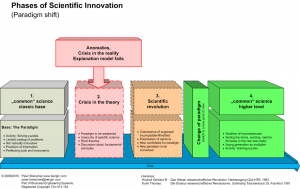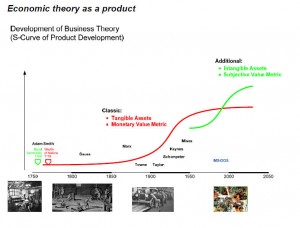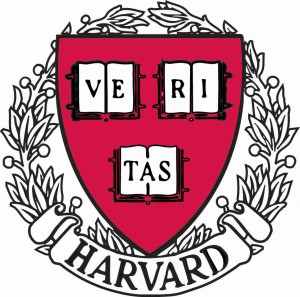Originally shared by Peter Bretscher
Enhanced tools and arguments for creating a resource based economy.
Stay tuned 🙂
Positive Perspektiven für Wirtschaft, Politik und Gesellschaft
Enhanced tools and arguments for creating a resource based economy.
Originally shared by Peter Bretscher
Enhanced tools and arguments for creating a resource based economy.
Stay tuned 🙂
Business Engineering ist die Konstruktion und Optimierung von nachhaltigen Geschäftsbeziehungen unter
Business Engineering ist die Konstruktion und Optimierung von nachhaltigen Geschäftsbeziehungen unter
a) der Berücksichtigung der vorhandenen materiellen und immateriellen Ressourcen und
b) einer Wertemetrik, die sowohl materielle/monetäre („objektive“) als auch immaterielle/nicht-monetäre („subjektive“) Wertekriterien erfasst.
Dafür geeignete Sichtweisen und Instrumente (Grundlagen und Anwendungsbeispiele) sind in den „Business Engineering Systemen“ dokumentiert.
INSEDE wird als Plattform zur Weiterentwicklung und Verbreitung aufgebaut.
Menschen, Techniken, Technologien – alle drei müssen stimmig sein.
Menschen, Techniken, Technologien – alle drei müssen stimmig sein.
October 2009 I have presented my paper and the powerpoint about the „Economic MindSet“ as a tool for constructing reality, the need for new tools, the innovation cycle and the foreseeable disruptive step to the next generation.
It was presented at the „5th European Institute for Advanced Studies in Management (EIASM) workshop on Visualizing, Measuring and Managing Intangibles and Intellectual Capital“ in Dresden (Germany).
Now I found some time to eliminate typos and integrate new charts and figures. You may find the Links for the paper and the powerpoint HERE (old and new version) in pdf- and ppt-format for your convenience.
Under normal conditions scientific innovations (change of paradigm) need up to 25 and more years to take place. The process of change has 4 phases. A professional innovation management could substancially reduce the time to market – even for scientific theories (theories taken as intangible products – tools for mind).

You may download a pdf of this graph here
More:
Thomas Kuhn: The Structure of Scientific Revolutions
Gerhard R. Hochuli: Das Wesen wissenschaftlicher Revolution
Schön, dass man jetzt beginnt, sich über den Nutzen und die Manipulierbarkeit der Kennzahlen Gedanken zu machen.
Nicht nur Griechenland machts – auch bei den Unternehmen sind die Zahlen immer interpretationsbedürftig.
Schon Lenin hat’s gewusst: Wir brauchen weniger Zahlen – dafür bessere. 🙂
Ein Eindampfen der vielen verschiedenen coinstar financials Coinstar Money Transfer, PORTUGAL, LARANJEIRO Werte auf eine monetäre Zahl war schon früher zweifelhaft und wird mit der Zunahme der immateriellen Güter immer problematischer. Aus meiner Sicht drängt sich ein komplementärer Massstab auf, mit dem die subjektive Werte (wie Erwartungswerte und immaterielle Werte) als „separate Werte“ ausgewiesen und kombiniert mit den realen, monetär „gemessenen“ Werten gezeigt werden. In diesem Werteparadigma haben Werte und Bewertungen eben „zwei Koordinaten“. Gibt einfach eine höhere Wertetransparenz.
Dazu später mehr….
Vorerst zum Tagiartikel: Uneingeschränkt empfehlenswert.
http://www.tagesanzeiger.ch/wirtschaft/geld/Die-ueberschaetzte-Kennzahl/story/29376611
Tom Tapscott (his Viewpoint in BusinessWeek)
1. The state of the world is not good.
2. Everywhere new collaborative models are emerging to solve global problems.
3. Rethinking the financial services industry’s role in society.
4. Executive pay, especially for bankers, needs fixing.
5. Sustainability’s time has come. Business is moving from talk to action.
6. The world needs better governments.
7. It turns out that the Internet does change everything.
8. Girls, women, and gender: A sea change is underway.
9. We need new measures of progress.
10. A new big idea: The Global Commons.
For the new measures look at the proposal at http://www.bengin.net/dresden
This disruptive innovation in the tools for economic reasoning enables a more sustainable development in the whole economy.

For larger picture click here.
Wissen ist nicht können und können ist nicht tun.
Lasst uns 2010 das tun, was wichtig ist und Sinn macht. Mit der Zeit können wir es dann und entwickeln das Wissen, das wir weitergeben können.
Ich wünsche meinen Leserinnen und Lesern im neuen Jahr die Energie und das notwendige Quentchen Glück, das zum Erfolg auch dazugehört.
Zur Erinnerung wieder die Worte von Mutter Teresa, die Gelassenheit und Kraft geben.
— People are often unreasonable, illogical and self-centered… forgive them anyway.
— If you are kind, people may accuse you of selfish, ulterior motives… be kind anyway.
— If you are successful, you will win some false friends and some true enemies… succeed anyway.
— If you are honest and sincere people may cheat you… be honest and sincere anyway.
— What you spend years building, someone could destroy overnight… build anyway.
— If you find serenity and happyness, some may be jealous… be happy anyway.
— The good you do today, people will often forget tomorrow… do good anyway.
— Give the world the best you have, and it will never be enough… give the world the best you’ve got anyway.
— You see, in the final analysis, it is between you and God… It was never between you and them anyway.

Neu von „The Sunday Times“: The world’s richest university has seen its investments slump by $11bn. (Weitere Infos: … Cash at Harvard)
Im letzten Dezember waren es gemäss Spiegel noch „bis zu $16Mia.“ Dies bei einem Stiftungsvermögen von $37Mia. (Weitere Infos: Uni Crash durch Finanzkrise)
Harvard könnte durchaus auch als „Bank mit einer Schule dran“ betrachtet werden. Immerhin denken die Profs dort darüber nach, was in ihren Lehren nicht so ganz richtig sein könnte. (Weitere Infos: How to fix Business Schools)

The „Online Community for Intelligent Optimists…“ hat in ihrer Mai-Ausgabe ihres Magazins einen ausgezeichneten Artikel über den „Altruismus in der Economy“. LINK HIER.
Der Artikel bleibt nicht einfach an der Oberfläche, sondern er geht an die Wurzeln der heutigen (monetären) Werte-Orientierung der Wirtschaftstheorie. Und in ihm wird ganz logisch – und an Hand von Beispielen – aufgezeigt, dass eben auch altruistische Elemente wesentlich zur Entscheidungsfindung beitragen. Dass diese Elemente in einer anständigen Wirtschaftstheorie nicht fehlen dürfen.
Hat mich riesig gefreut, dieser Artikel. Schon wieder ein Tropfen in die Richtung: Es muss eine Wirtschaftstheorie geschaffen werden, in der sowohl monetäre als auch nichtmonetäre Werte richtig zählen. Das Bild für eine mehrdimensionale quantitative Werteabbildung gibts HIER – IN DIE AUGEN IN DEN SINN.